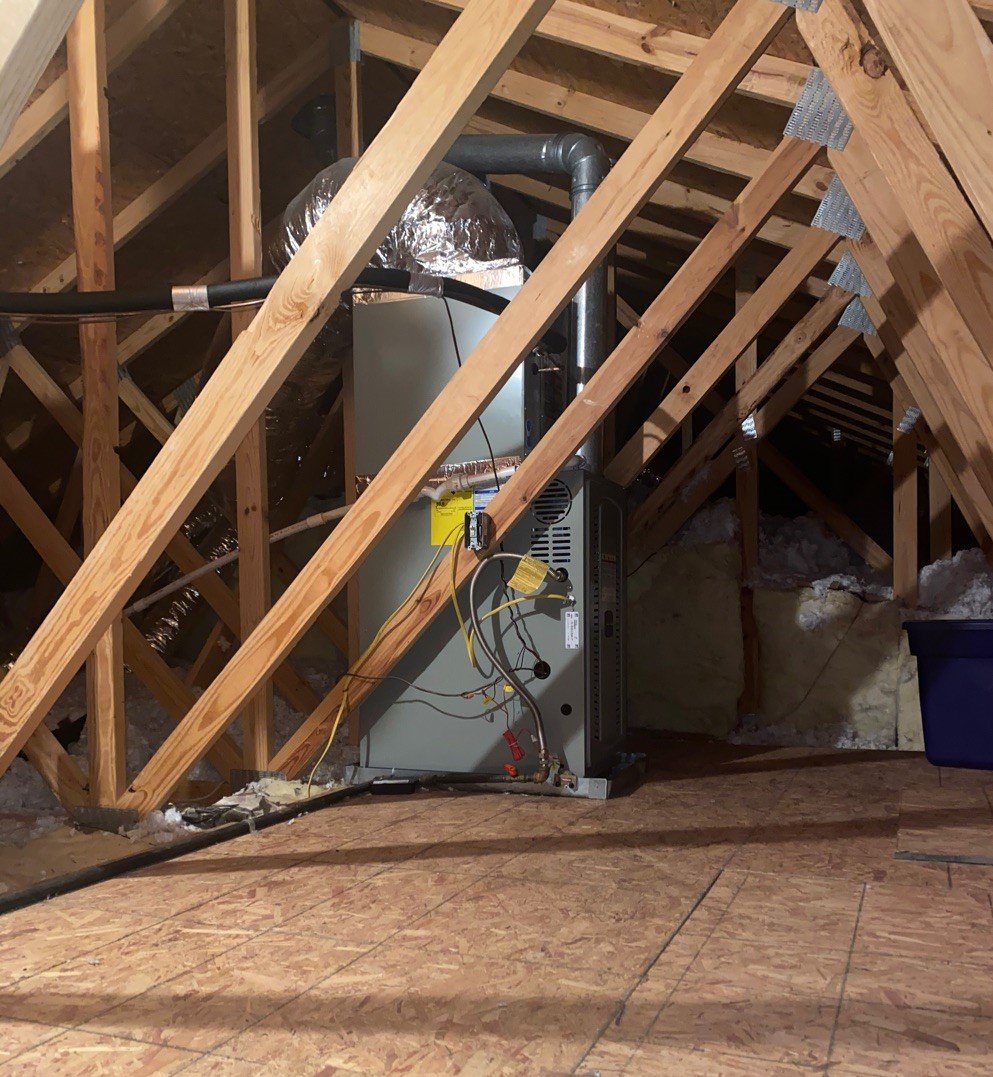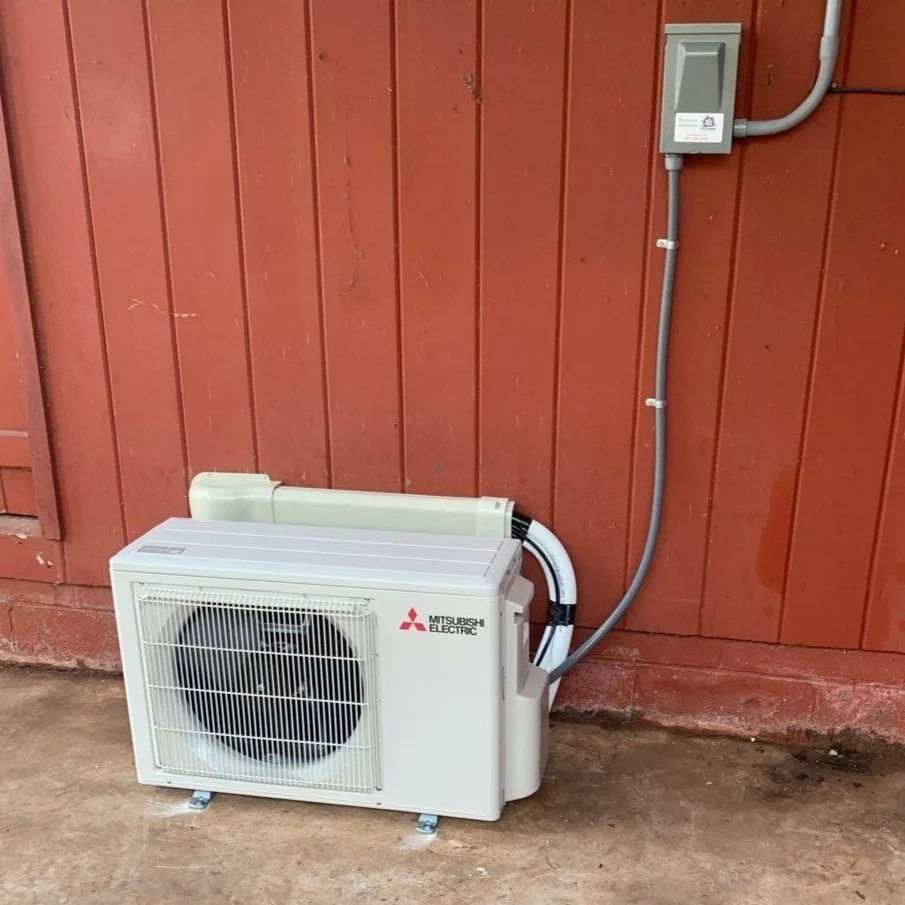Heating Installations
Introduction:
Welcome to our comprehensive guide on professional heating installation, a pivotal component of residential HVAC systems. As temperatures drop and winter approaches, ensuring your home is equipped with an efficient and reliable heating system becomes paramount. In this article, we'll dive deep into the world of heating systems, exploring various types, the installation process, and maintenance tips to keep your home warm and comfortable. Whether you're in Knoxville, TN, or the surrounding areas of East Tennessee, understanding heating installations and how they contribute to your indoor air quality and energy bill is crucial.
Choosing the right heating system, whether it's heat pumps, furnaces, or boilers, is not just about staying warm; it's about creating an environment where your family's comfort and safety are prioritized. From the importance of selecting energy-efficient products to consider the best heating equipment for your specific needs, we will guide you through every step. With an emphasis on practical advice and expert insights, this article aims to be your go-to resource for all things related to heating services.
Stay tuned as we discuss the significance of a new heating system, the nuances of heater installation, and the benefits of opting for high-efficiency options like electric resistance heating or pellet stoves. Our goal is to empower you with knowledge so you can make informed decisions about your heating needs when your system breaks, ensuring your house remains a cozy sanctuary throughout the colder months. Let's embark on this journey together, ensuring your next heating installation, replacement, or repair is a resounding success.
Types of Heating Systems for Homes
When it comes to keeping your family warm during the chilly winter months, understanding the various types of heating systems available is essential. Each system has its unique benefits and considerations, making it vital to choose one that aligns with your specific heating needs and the unique layout of your house.
Central Heating Systems:
Boilers: A popular choice in many East Tennessee homes, boilers heat your home through hot water, which is then circulated through radiators or underfloor heating systems. They are known for their efficiency and even heating.
Furnaces: Furnaces, which may use natural gas, electricity, or oil, force heated air into your home's ductwork, providing quick and effective heating. Their energy efficiency can vary, so look for high-efficiency models to keep your energy bill in check.
Heat Pumps: Heat pumps are a versatile option, offering both heating and cooling. They work by transferring heat from the outside air or ground into your home. In Knoxville, TN, where the climate is moderate, heat pumps are an energy-efficient choice for both heating and cooling needs.
Direct Heating Systems:
Space Heaters: Perfect for heating certain areas or rooms in your house, space heaters are portable and convenient. However, they may not be the most energy-efficient option for larger spaces.
Gas-fired Heaters: These heaters use natural gas and are a good option for quickly warming up a space. Ensure your home is well-ventilated if you opt for this type of heater.
Electric Resistance Heating: This includes baseboard heaters and is 100% energy-efficient in terms of converting electricity to heat. However, the cost of operation can be high due to electricity prices.
Innovative Solutions:
Solar Heating: Harnessing the power of the sun, solar heating can significantly reduce your energy bill and carbon footprint. While the initial installation can be costly, the long-term savings and environmental benefits are considerable.
Geothermal Heating: Utilizing the earth's stable ground temperature, geothermal systems are among the most energy-efficient heating options available. They require significant upfront investment but offer low operating costs and exceptional comfort.
Factors to Consider Before Installation
Before you schedule your heating installation, several key factors should influence your decision. These considerations will ensure that your new heating system is not only efficient but also perfectly suited to your home and lifestyle.
Home Size and Layout: The size and design of your home will significantly impact the type of heating system that's best for you. Larger homes may benefit from a central heating system, while smaller spaces might find a direct heating option more practical.
Climate and Location: Residents of Knoxville and the broader East Tennessee area experience a range of weather conditions. Your local climate should dictate the kind of system you install, with some being better suited for milder temperatures and others built for extreme cold.
Energy Efficiency: Understanding the energy efficiency of different heating systems can save you money on your energy bill in the long run. Look for high-efficiency models and consider the long-term savings of more sustainable options like solar or geothermal heating.
Budget: The cost of heating installations varies widely based on the system type and the complexity of the installation. Factor in the initial cost, as well as long-term expenses such as maintenance, repairs, and energy usage.
Step-by-Step Guide to Heating System Installation
Installing a new heating system in your home is a process that requires careful planning and consideration. Here's a step-by-step guide to help you understand what to expect:
Planning:
Assess your heating needs and research different types of heating systems. Consider factors like your home's size, local climate, and energy efficiency needs.
Consult with professionals. A qualified HVAC contractor can provide valuable insights and recommendations based on your specific circumstances.
What to Expect During Furnace Installation:
The installation process will vary based on the type of system you've chosen. However, most will involve preparing the area, installing the unit, and setting up any necessary ductwork or piping.
Your installer should test the system thoroughly to ensure it's operating correctly and efficiently. They'll also walk you through how to use and maintain your new system.
Innovations in Residential Heating Technology
The heating industry is continuously evolving, with new technologies emerging to make heating your home more efficient and environmentally friendly. Staying informed about these innovations can help you make wise decisions about your heating needs.
Smart Thermostats and Automated Systems:
Smart thermostats learn your habits and adjust your heating accordingly, potentially saving you a significant amount on your energy bill. They also offer the convenience of controlling your system remotely via smartphone.
Automated zoning systems allow you to heat different parts of your house to different temperatures, ensuring comfort and efficiency.
Eco-friendly and Sustainable Heating Replacement Solutions:
Solar heating and geothermal heating are gaining popularity for their ability to significantly reduce carbon footprints and long-term energy costs. These systems are an investment in your home and the planet's future.
Pellet stoves and other biomass heating options offer a more sustainable alternative to traditional fossil fuels, utilizing renewable resources for warmth.
The Future of Home Heating:
Look out for advancements in heat pump technology and high-efficiency boilers and furnaces. These developments promise to deliver better performance, reduced energy use, and increased comfort.
Integrating heating systems with home automation and smart home technology is becoming more common, offering unprecedented control and efficiency.
Safety Considerations and Regulations
Ensuring the safety of your heating system is paramount. Proper installation, regular maintenance, and adherence to safety guidelines can protect your family from potential hazards.
Safety Tips for Operating Heating Systems:
Install carbon monoxide detectors near your heating system and in sleeping areas to alert you to any dangerous emissions from your heating equipment.
Keep flammable materials away from your furnace, boiler, or heater. Regularly check for gas leaks, and ensure your home is adequately ventilated.
Understanding and Complying with Local Codes and Regulations:
Familiarize yourself with local building codes and regulations regarding heating installation and heating repair. These are in place to ensure safety and efficiency.
Always use a qualified and licensed professional for installation and major repairs. They are trained to comply with all local codes and safety standards for all replacement services.
Choosing a Professional for Your Heating Installation
Selecting the right professional for your heating installation or repair is crucial. A qualified technician can ensure your system is installed correctly, operates efficiently, and complies with all safety regulations.
How to Select a Qualified and Reliable HVAC Contractor:
Look for certifications and licenses. Reputable contractors will have the necessary credentials and will be happy to provide them upon request.
Check reviews and ask for references. Hearing about other customers' experiences can give you insight into the quality and reliability of the contractor's service.
Questions to Ask and Credentials to Look For:
Ask about their experience with your specific type of heating system and in your particular area. Knowledge of local climate and common issues can be beneficial.
Inquire about warranties and after-installation support. A good contractor will stand behind their work, be available to assist with any issues that arise, and perform proper maintenance.







